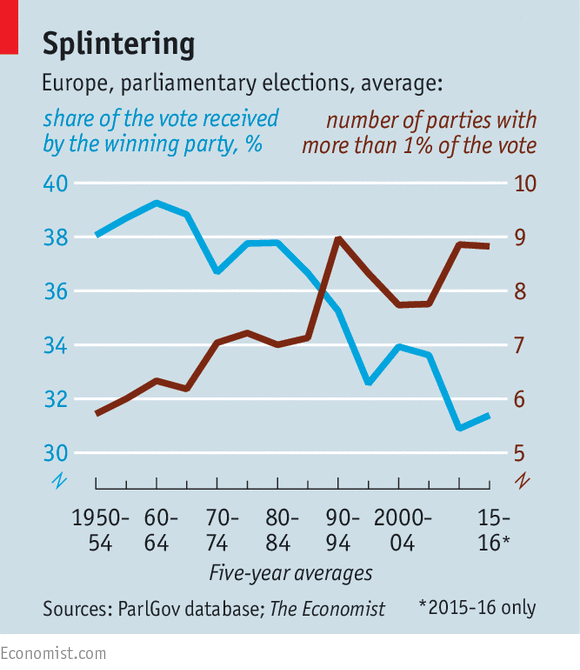|
Op-Ed Columnist
|
| The shrinking of Europe’s traditional political parties continues. |
| In Britain, the two main parties, Labour and the Conservatives, finished in third place and fifth place in this weekend’s European Parliament elections. The populist right-wing Brexit Party finished first, with close to 32 percent of votes. |
| In Germany, the two establishment parties — one center-right and one center-left — lost more than quarter of their combined seats. The biggest gainers were the left-leaning Greens. |
| In France, the Greens gained as well, although the right-wing National Rally (known until recently as the National Front) finished first. The two traditional parties finished fourth and sixth. |
| Many people felt relief that far-right parties — which traffic in xenophobia — didn’t do better in this weekend’s elections. Instead, candidates who support the idea of the European Union combined to win a majority of seats. I share that relief. |
| But I think it’s important not to lose sight of the main story line. Across much of Europe and the United States, dissatisfaction with the status quo remains the dominant political mood. That’s why so many European parties that were powerful only a few years ago now finish well outside the top two spots. It’s also why Donald Trump was able to take over the Republican Party and win the presidency — and why control of Congress has flipped back and forth in recent years. |
| In the 2020 presidential campaign, Trump will no doubt attempt to tap into this anti-establishment mood once again. He will be the incumbent, which will make that strategy trickier for him. But he will be an incumbent like no other, one who constantly shows his disdain for the status quo. |
| Democrats will need their own plan for speaking to this desire for change, especially if they nominate the decidedly establishment Joe Biden. |


No comments:
Post a Comment